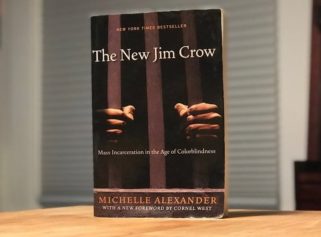
Tyrone Peake says he’s been fired from three jobs because a crime he committed more than 30 years ago is still on his record. (Carrie Johnson/NPR)
The Black unemployment rate is 10 percent, nearly double the national unemployment rate. However, one of the reasons Black people might have a harder time finding employment is because of the criminal justice system. This is one of the points made by Michelle Alexander in her book, The New Jim Crow: Mass Incarceration in the Age of Colorblindness. She argues that mass incarceration left large numbers of Black men with felonies preventing them for ever being gainfully employed.
However, the tide seems to be turning. Many Americans are now lobbying to roll back laws that prevent former inmates from re entering society. According to The Huffington Post, a Pennsylvania panel of judges recently struck down a law that permanently banned 200,000 people with criminal records from employment.
Pennsylvania’s Older Adult Protective Services Act permanently barred anyone with a criminal record from jobs that involved caring for the elderly. The Huff Post said a panel of judges ruled that the law was unconstitutional. The judges argued that the law was too broad and failed to consider the nature of the crime, or how much time had passed since the crime was committed. Former convicts were continuing to be punished for minor crimes they committed several decades ago.
This happened to Tyrone Peake, one of five people who filed a legal challenge against the law. Peake was convicted of riding in a stolen car in 1981. That decades-old conviction has prevented him from finding work as a caregiver. According to NPR, one in four Americans has a criminal record. This can bar former convicts from jobs in fast-growing sectors like health.
Peake told NPR his conviction has cost him several jobs.
“I’ve been fired from three jobs,” Peake said, “because [of] having a criminal record. And my record is like 32 years old, and I haven’t been in trouble since then.”
Peake is not the same irresponsible teenager he was back in 1981. He went back to school and now works as a counselor for men addicted to drugs and alcohol, but he is still being punished for his crime.
This is a point echoed by Alexander. She said the American criminal justice system puts a permanent stain on people’s record making it impossible to ever be reintegrated into society. Alexander argues the criminal justice system treats Black felons even worse than Black people under Jim Crow.
“Once you’re labeled a felon, the old forms of discrimination—employment discrimination, housing discrimination, denial of the right to vote, denial of educational opportunity, denial of food stamps and other public benefits, and exclusion from jury service—are suddenly legal,” Alexander writes. “As a criminal, you have scarcely more rights, and arguably less respect, than a black man living in Alabama at the height of Jim Crow.”
However, other states are beginning to realize the importance of reintegrating former convicts back into society. California has “banned the box,” meaning that employers can no longer ask if you have a felony on job applications.
Sam Lewis, a former inmate who now works as a life coach with the Anti-Recidivism Coalition (ARC) in Los Angeles, told Our Weekly being able to get a job would help ex-convicts build confidence and become productive members of society. He said former inmates often make loyal, hard-working employees.
“We need more employers to give us the opportunity,” Lewis said.


